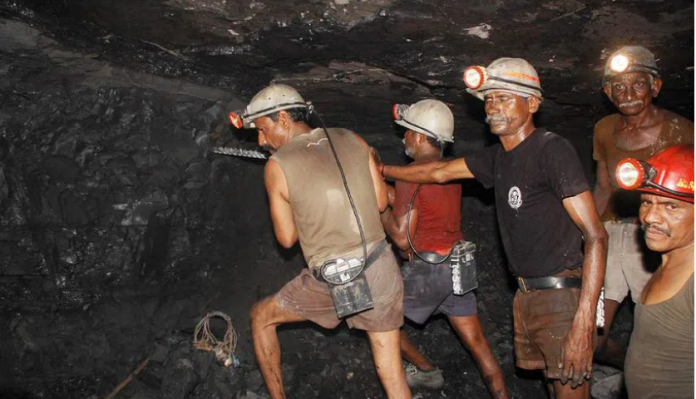Telangana: Singareni Miners Demand Shift Timing Changes Amid Soaring Summer Heat – Singareni, Telangana:
As summer temperatures surge across Telangana, miners working in the Singareni coalfields are urging the authorities to reconsider and revise their current shift timings. Workers say the extreme heat inside the open-cast mines has become unbearable and dangerous, significantly higher than temperatures in normal areas.
According to sources within the Singareni Collieries Company Limited (SCCL), the temperatures in open-cast mining sites are often 4 to 5 degrees Celsius higher than the general atmospheric readings, due to the black coal surface absorbing and radiating heat.
🔥 Working Conditions Worsen in Summer
The miners, many of whom work long hours exposed to direct sunlight and coal dust, are particularly vulnerable to heatstroke, dehydration, and other heat-related illnesses during the peak summer months. Temperatures in these regions have already crossed 45°C (113°F) in some areas, making mid-day work conditions not just uncomfortable but life-threatening.
🗣️ Workers Voice Concerns
Miners are calling for a shift in the work schedule, especially for open-cast workers, to avoid the harsh midday sun. Several worker unions have submitted representations to the SCCL management, requesting that work shifts either start earlier in the morning or move to late evening hours to reduce exposure during the hottest part of the day.
“We are not against work, but survival matters too,” said one miner from the Manuguru coal belt. “We are asking for humane conditions. Let us begin earlier or work in cooler hours so that we can continue our duties without risking our health.”
🏢 Management Response Awaited
While SCCL has taken precautionary measures like distributing ORS sachets, setting up water booths, and issuing heatwave advisories, the demand for shift rescheduling remains under review. Workers hope that swift action will be taken before the heat wave intensifies further in May and June.
Health experts and environmentalists also back the demand, stating that long-term exposure to such extreme conditions can lead to chronic health problems among workers and hamper productivity.









